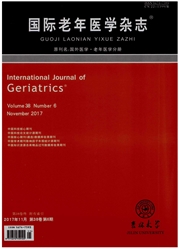

 中文摘要:
中文摘要:
酵母作为经典的模式生物,既具有原核生物生长快、基因操作简便的特点,又具有真核生物翻译后加工修饰功能的特点,已作为衰老研究及寿命相关基因鉴定的理想研究模型。营养反应激酶雷帕霉素靶蛋白(TOR,target of rapamycin),在进化上高度保守,可通过调节细胞应激反应、自噬作用、代谢和核糖体生成及控制氮源碳源的代谢等生物过程影响细胞生命周期。近年来研究表明TOR与衰老进程关系密切,因此本文拟就TOR蛋白在酵母寿命研究中的最新进展进行综述,以期为高等生物衰老的研究提供线索。
 英文摘要:
英文摘要:
Yeast, as a classical model organism, has been established to be an ideal research model for aging investigations and longevity genes identification, which is characterized by fast growth, facilitated gone manipulation as prokaryotes and the post - translational process functions as eukaryotes. Target of rampaycin (TOR) , function as nutrient -sensing kinase, is an evolutionarily conserved protein and exerts critical effects in lifespan of cells in many species through regulating multi - cellular bioprocesses including stress responses, autophagy, metabolism, ribosome biogenesis and metabolism of carbon and nitrogen source etc. Accumulating evi- dences have demonstrated the relationship between TOR protein and aging. This paper reviews recent advances in relationship between TOR and yeast lifespan inorder to provide significant clues for aging research of higher animals.
 同期刊论文项目
同期刊论文项目
 同项目期刊论文
同项目期刊论文
 MicroRNA transcriptome analysis identifies miR-365 as a novel negative regulator of cell proliferati
MicroRNA transcriptome analysis identifies miR-365 as a novel negative regulator of cell proliferati PMT1 deficiency enhances basal UPR activity and extends replicative lifespan of Saccharomyces cerevi
PMT1 deficiency enhances basal UPR activity and extends replicative lifespan of Saccharomyces cerevi CIA2 deficiency results in impaired oxidative stress response and enhanced intracellular basal UPR a
CIA2 deficiency results in impaired oxidative stress response and enhanced intracellular basal UPR a 期刊信息
期刊信息
